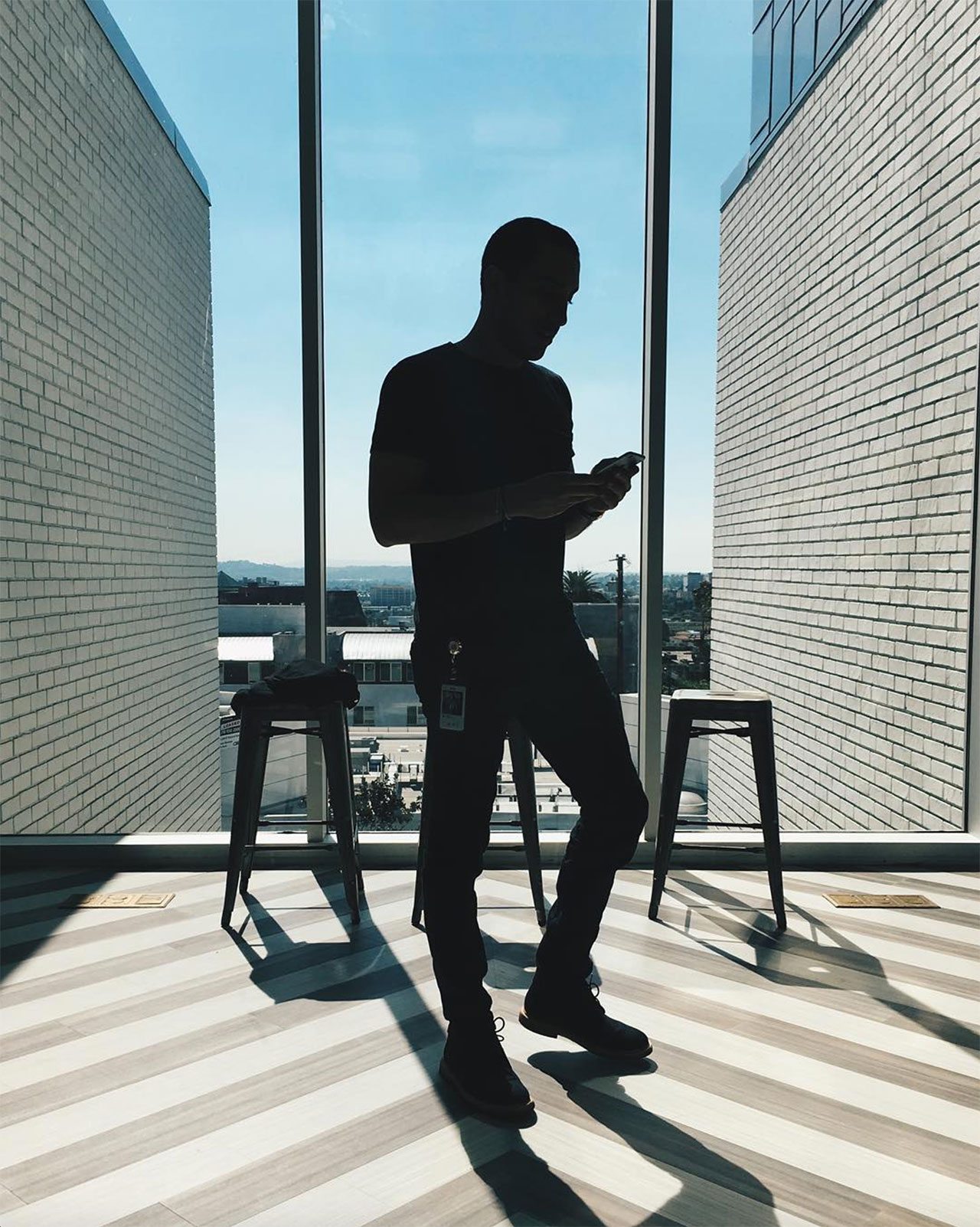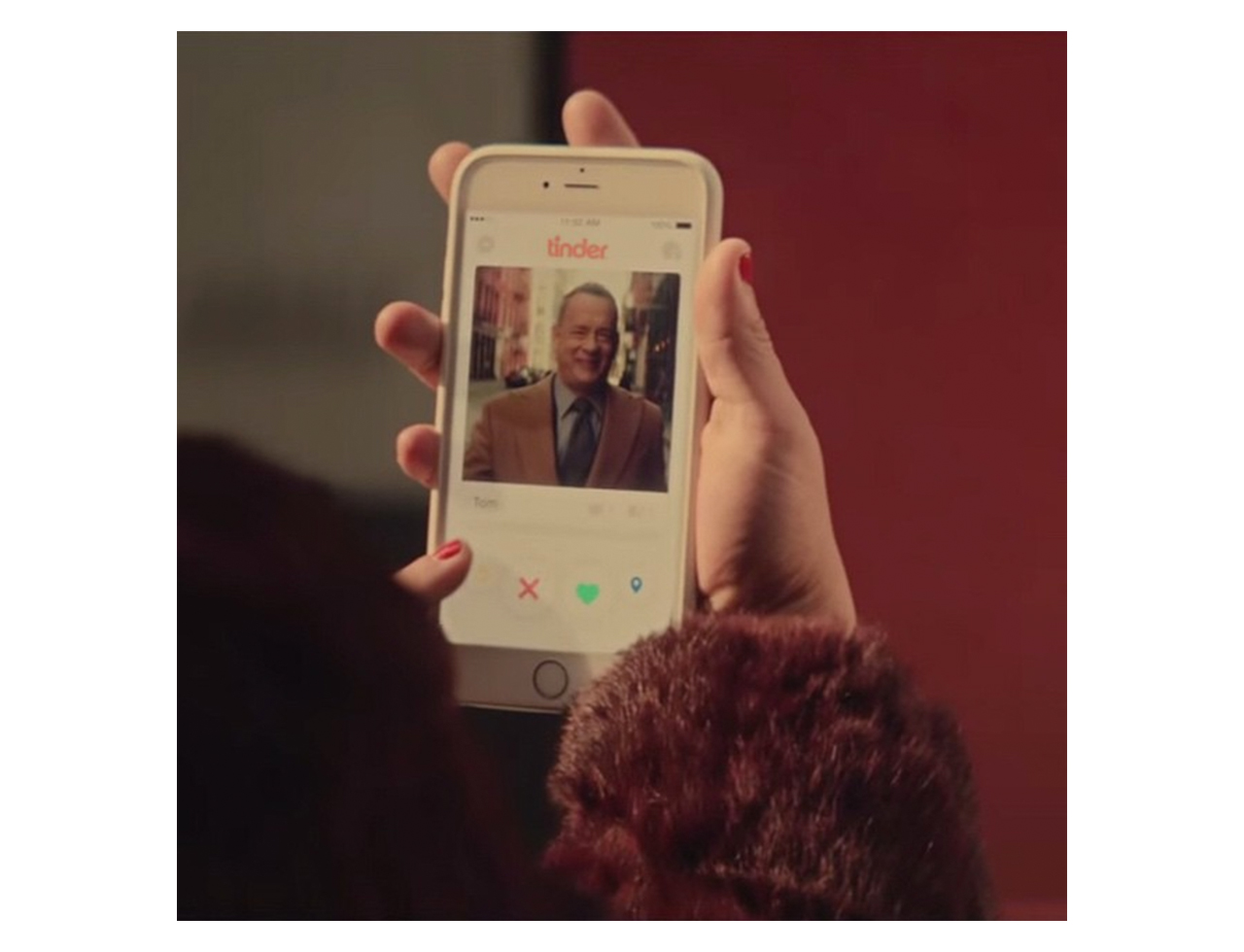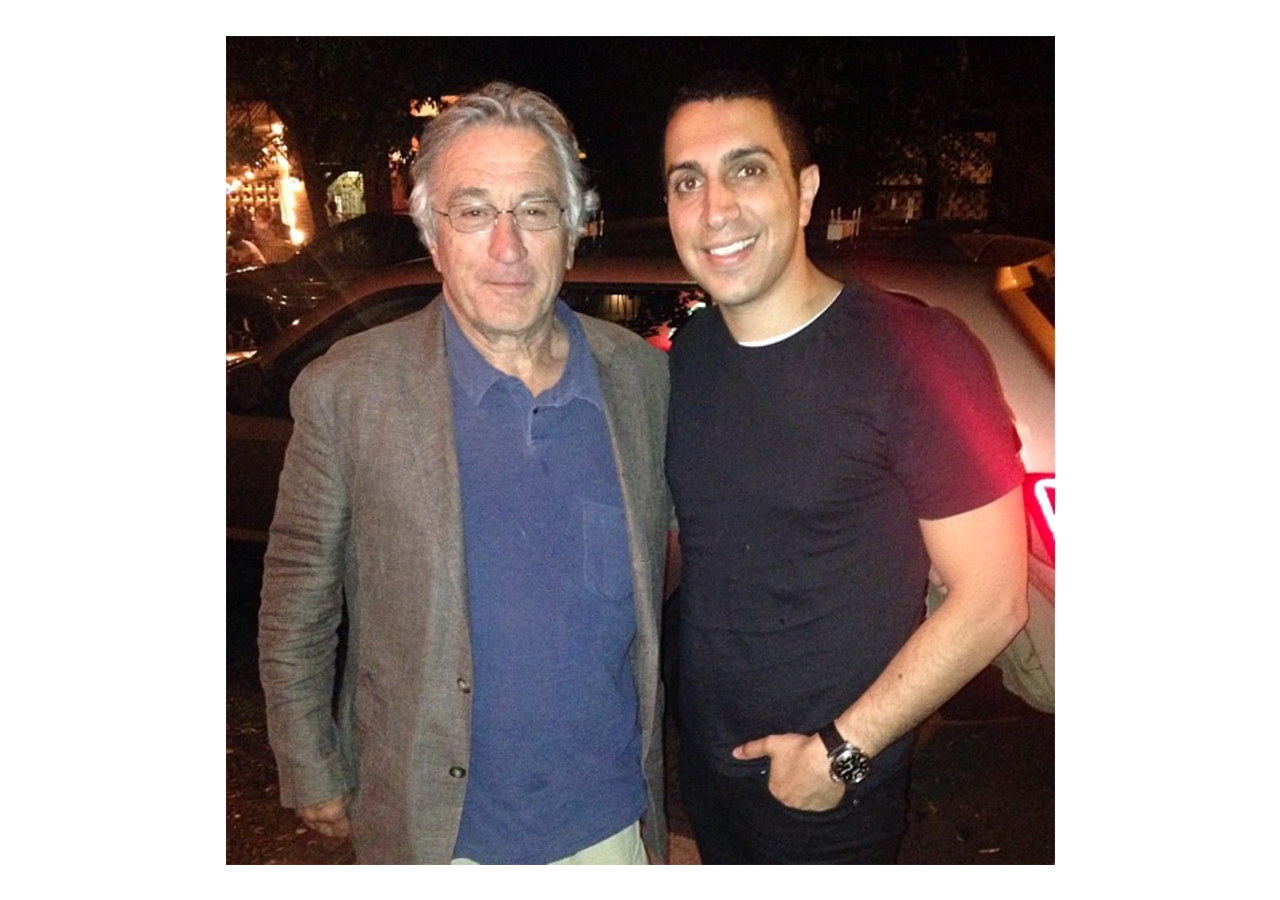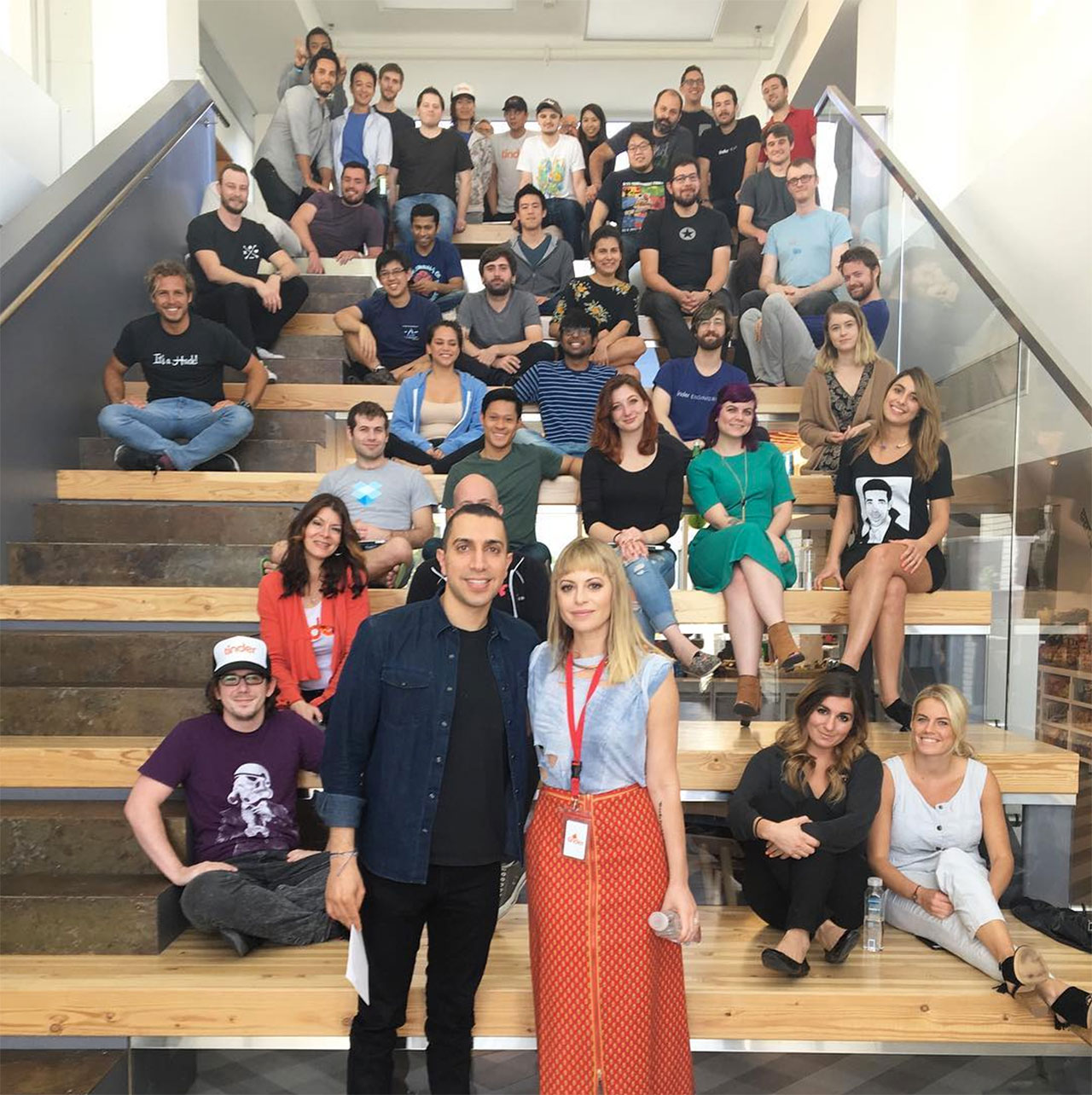News feed

Credit: Sean Rad/Instagram
Sean Rad says he hasn’t seen popular MTV reality series Catfish, an assertion which, given his line of work, I find hard to believe.
Rad (who has been blessed with a surname that can only be described as ‘apt’ considering his role as the chairman of one of Silicon Valley’s most notable and at-times controversial start-ups) is the co-founder of an app with which you will inevitably have some level of familiarity: Tinder.
In the five years since its inception, Tinder (which surely requires no introduction at this point) has revolutionised the way in which we think about and approach dating and modern romance.
It’s a reality that Rad, 30, says he doesn’t think he’ll ever process, and one with which he has to come to terms every day thanks to a daily “bombardment” of messages from people whose lives have been irrevocably changed thanks to one paltry gesture – a simple swipe of the finger, the kind of action that has permeated our collective cultural consciousness and in doing so has begun to signify something much greater.
But what about those whose lives can also be altered forever with a single, sweeping motion – say, the signing of a presidential signature on an executive order to ban immigration?
Speaking with GRAZIA in Sydney earlier this week, Rad – who is the son of Iranian immigrant parents working in an industry that wouldn’t exist without migrants – addressed the stigma and challenges facing his company. He also spoke regarding its stance on the recent immigration ban; which way he would swipe on President Donald Trump; and what he has learned from his failed relationships – both personal and professional.
As a point of interest, it’s also worth noting that a recent partnership between Tinder and Rock The Vote revealed in November 2016 that, globally, 80% of Tinder users matched with Hillary Clinton and 20% of users matched with Trump. Furthermore, 57% of users also responded that they would prefer a path to citizenship for undocumented immigrants.
First question: Are you single? Yeah.
And so are you on Tinder? I use it mostly to get feedback from our users. So I’ll talk to users through the app and ask them what they like and don’t like about Tinder. It’s so valuable for that because we have so much quantitative data, which informs different changes we might make and what’s working and all. But nothing compares to actually asking people about their experiences and what they would change about the app. So we get a lot of ideas from those interactions.
How do people react once you’ve mutually swiped in favour of each other and you open with, ‘Hi, I’m the co-founder of Tinder’? Half the time they don’t believe me, and then the other half of the time they just start telling you everything they like and don’t like about the app.
And so you become their Tinder therapist. Yeah, exactly. And it’s great, because I get tonnes of ideas from our users and just listening from them. It’s cool because we travel and I get to do that all over the world, and get this global perspective on what people are looking for in different countries and what’s different. Tiny differences but it’s awesome.
Have you noticed any feedback that’s unique to an Australian audience? We actually launch everything in Australia first [because] we’ve seen historically Australia is always the first and the quickest to adopt whatever we launch. It allows us to launch something, give it to a lot of users and get feedback on how to make it better before we take it global to everyone else.

Tinder and Tom Hanks make a cameo in Carly Rae Jepsen’s video for ‘I Really Like You’, from the iconic album E•MO•TION
Credit: Tinder/Instagram
Tinder is part of a new generation of apps that have drastically altered the ways in which we communicate, particularly when it comes to the landscape of contemporary dating.
Do you think you’ll ever be able to process the knowledge that you’ve played a part in radically altering such a fundamental human ritual? No. I think for me the greatest experience is when people tell me about how it’s changed their lives and how they met their love of their life. Some of the stories I’ve heard are better than Shakespeare. That is the best experience. It feels amazing having a positive impact on people’s lives, you talk to anyone of a certain age and you ask them what is the most important thing about your life looking back and it’s the people that they met, their husband or wife. And if you can bring that to someone’s life that’s the greatest gift.
Conversely, with great power comes great responsibility. What do you consider to be the greatest challenge that A) Tinder faces as a brand, and B), that you face personally? I think the bigger we get, for any company, as you scale, you need to maintain quality. Certain things that worked when we had 100,000 users no longer work when we have three million users. So that is, I think, a challenge.
Another challenge for us is that we’re a global company. A lot of successful tech companies are global but I think we’re probably in more territories than most of these companies and we’ve done it in a shorter amount of time. We kind of exploded all over the map. The last year has been about building a team to sustain the growth that happened organically and virally. It’s a lot harder to do things as a company when you have to think on a global scale.

Credit: Sean Rad/Instagram
other successful tech companies of the kind that you mention have grown to become global forces – and I would classify Tinder as one of a class that, as we said before, Has had an immeasurable impact on the way we operate day-to-day, likewise Google, Netflix, Uber and Airbnb.
in the past week, ceos of those companies have taken a very public position on the current political climate in the United States in light of President Trump’s divisive executive orders, namely the banning of immigration.
What is Tinder’s official stance in light of recent events, and what is your personal take on those issues? We’ve talked about it internally. We haven’t said anything yet externally. Look, my stance is, American people voted for the candidate they want, which we have to respect. But at the same time I think there are much… No candidate is perfect and there are better ways to solve the problems that we’re facing and seeing out there right now. I don’t think that the current course of action is right. I think a lot of people have stood up to say that, both in the community and the populace. At the end of the day I hope that the President will listen and maybe modify the strategy accordingly.
Right, so President Trump: swipe left or swipe right? Swipe up. Don’t swipe.
Close the app? Still determining.
So that’s what swipe up is, isn’t it? [That’s] The wrong context. I would say open the profile and learn more.

Rad, pictured right, with Robert Deniro
Credit: Sean Rad/Instagram
that’s a very enlightened stance. Tinder’s development in recent months, Tinder Social namely, ostensibly moves the app in the direction of more platonic interactions.
Is this something that you see the company pursuing more aggressively in the future? And are people really esponding to that? What we want to do is make introductions in the world, and we want people to determine how and what they can make out of those interactions. And people already use Tinder to make friends, especially as they travel to learn what to do and to make friends to go out with, to get recommendations. And you see some of these behaviours.
Before Tinder Social we would see a lot of users would plan dates but then also they would also match with users and say, ‘I’m going out with my friends, you should come and bring your friends,’ and it wasn’t really a thing but it ended up being this fun night out where you’ve made a lot of friends. So I think there’s definitely room for us to make friends, to introduce people who could become friends. And Tinder Social is one step in that direction. I always tell people number one priority is to be the best and do that for dating and master that and once we’ve mastered that we’ve earned the right to go and do it elsewhere. A lot of people would say we mastered it but I set very high standards for the company and I think we still have a long way to go.
I met a couple recently when I was out at a bar, and they told me they met not through Tinder, but through RSVP. It was interesting because the woman was very comfortable saying, “I met him online,” but the man was so hesitant – there’s still a social stigma around dating someone you met online.
Do you think Tinder’s unprecedented popularity has contributed to that stigma, or has it alleviated it? I think it’s definitely going away and going to fully go away within a certain generation. The younger generations approach almost everything in life through some digital medium. Those users, they’re going to feel opposite. There’s going to be sigma, I think, with meeting someone in the real world versus. I think Tinder definitely made it easier and more acceptable and more mainstream to use an app. I mean, it’s the biggest app of its kind. It’s the biggest platform for introductions in history.
But the other thing that’s important to recognise is [that] over centuries, the way we meet people has always evolved and every time there was an evolution people [who] don’t like change would look down upon that evolution. So like 18th century France, the only acceptable way to meet a mate was if you actually hand them a card and they have to hand you a card back to let [them] know [you] are interested. That changed to parents making introductions [and] in some parts of the world, it’s only acceptable [that] your parents introduce you to your significant other; then that changed to people meeting people at school, and then clubs and bars, and now we’ve [had] another evolution to Tinder. And I think every time there was an evolution there was a group that was more traditional and didn’t want the change, but I think it’s inevitable.

Nasty Gal founder and former CEO Sophia Amoruso speaks to Tinder’s staff at the company’s headquarters, prior to Nasty Gal’s filing for Chapter 11 bankruptcy protection in November 2016
Credit: Sean Rad/Instagram
When you set out to create a new evolutionary model, there’s always the likelihood that, in doing so, you’ll encounter failure. Do you see scope for failure in what you do, and what would that look like? Great question. I think failure is when you are incapable of capturing learnings from failure. So no one’s perfect. I’m not perfect, Tinder’s not perfect, and no organisation in the world is perfect. But what’s important is that you’re able to learn and react quickly. No one likes to lose, but along the way, you’re going to learn and there’s going to be main failures and you have to change your methods and you have to learn them. That’s the most important thing of entrepreneurship and maybe life. I think is to learn from what is happening and evolve.
What do you consider to be a significant failure that you’ve encountered and what did you take from that? Gosh, there’s thousands. Well, you know, Tinder Moments was a feature that a lot of… actually, no, I’ll go back. There was … no, I’m trying to think of a good story. I’ve failed tests before.
School tests? That’s going too far back. Look, I would say that I have failed in certain relationships, I’ve learned from them and I’ve grown from them, right. I think honestly everything in some way, if you look at it, depending on how you define success, you can look at it and say, ‘You failed at something, let me learn from it, let me do better.’ I’ve started three companies now, the first one wasn’t a failure but by my standards it didn’t meet my objectives and the second time around I did not make all the mistakes I made the first time. So I think that’s a good example, I only got better with every company and every experience.
This interview has been edited and condensed for clarity.
Tile and cover image: Joe Raedle/AFP; Clodagh Kilcoyne/Getty Images










